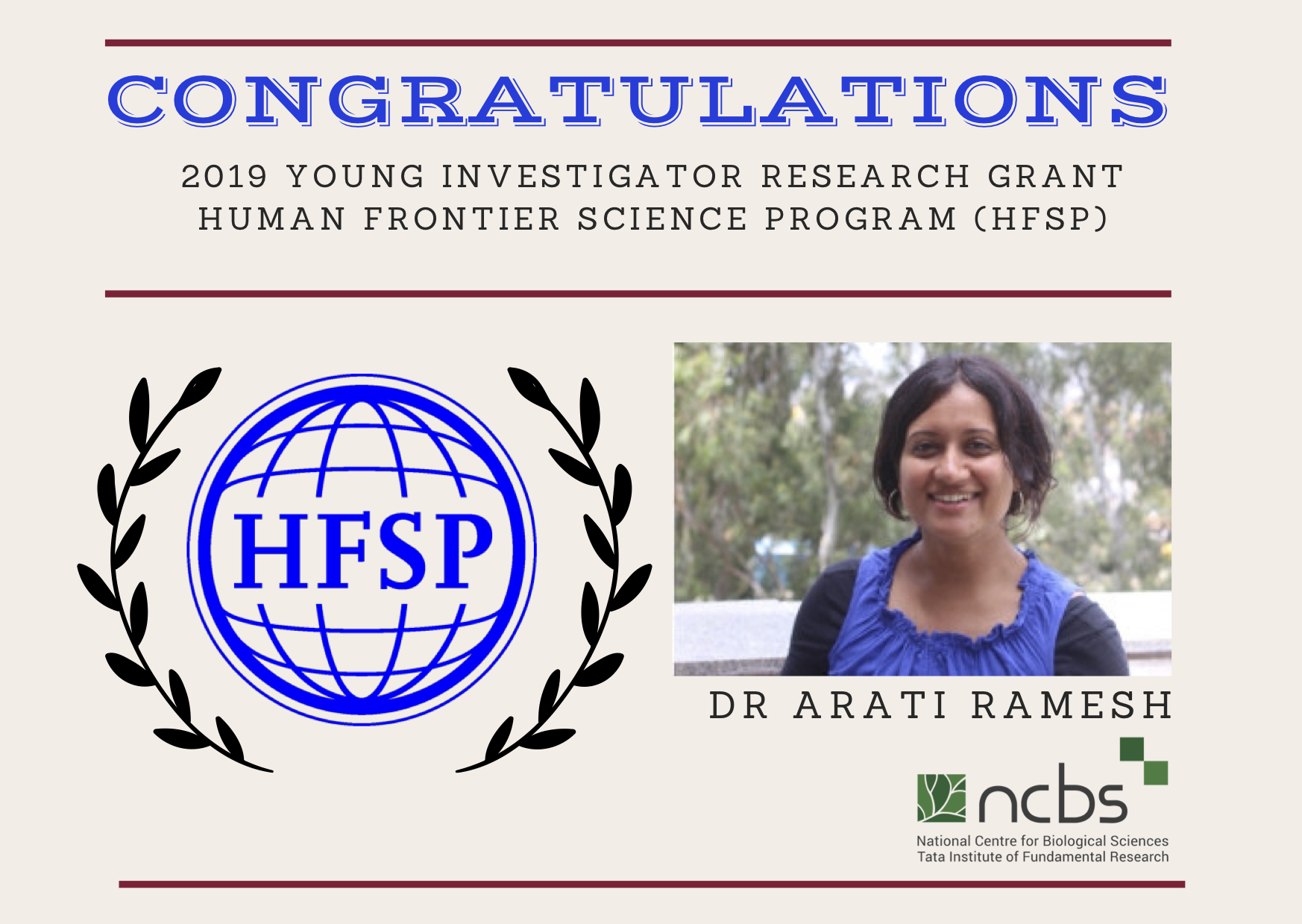Dr Arati Ramesh, from the Department of Biochemistry, Biophysics, and Bioinformatics at the National Centre for Biological Sciences has been awarded a 2018 Young Investigator Research Grant from the Human Frontier Science Program (HFSP).
Dr Ramesh received the award for her research entitled, “From self-reproduction to evolution in the RNA world”, which asks if evolution is possible in the absence of template-based replication. The research was jointly proposed with Philippe Nghe of ESPCI, Paris, France, Eric Hayden of Boise State University, USA, and Matteo Smerlak of Max Planck Institute for Mathematics in the Sciences, Leipzig, Germany.
Evolution, in life as we know it, relies on the copying of DNA with errors, providing the basis of reproduction with heredity and variation. Likewise, in the hypothetical RNA world, copying of RNA with errors is thought to have played the same role. However, the high complexity of RNA polymerases suggests that replication must have been preceded by reproduction and evolution based on simpler catalysts.
Reproduction can occur by autocatalytic synthesis of single ribozyme species from RNA fragments, or by collective autocatalysis of multiple ribozyme species, all denoted Auto Catalytic Systems (ACS). For ACS to evolve in an open-ended way, theory indicates that there must exist a large diversity of such ACS throughout the sequence space. Further conditions for evolution are that ACS must amplify within compartments (enabling reproduction with heredity), propagate to other compartments as a function of their differential amplification (selection), and that rare events trigger the appearance of novel ACS (variation). Dr Ramesh aims to test the hypothesis that RNA reproduction based on ACS is widespread in the sequence space, and from this diversity, demonstrate that evolution in ACS is indeed possible.
HFSP’s collaborative research grants are awarded for a broad range of projects under the umbrella theme, “Complex mechanisms of living organisms”. Dr Ramesh is one among just nine Young Investigators selected in 2019, with a three year-long grant to further our understanding of RNA reproduction and evolution. As the HFSP program funds only cutting-edge projects and is the only international program that funds teams of scientists globally “without borders” – this is a highly commendable achievement for a young researcher.
For more details about the award: http://bit.ly/icCsdh










0 Comments